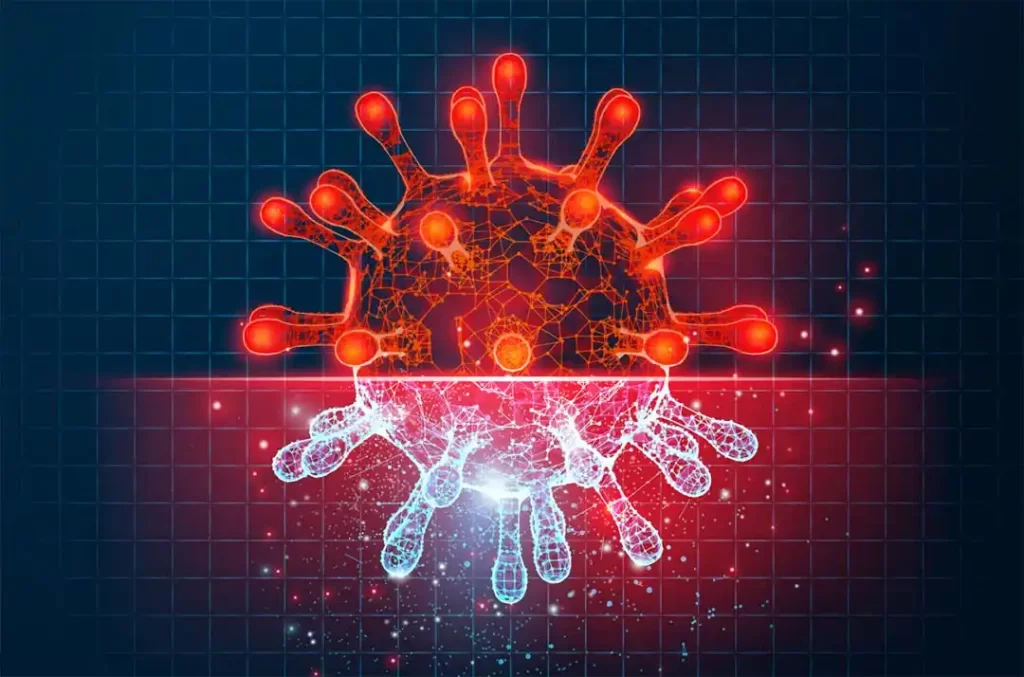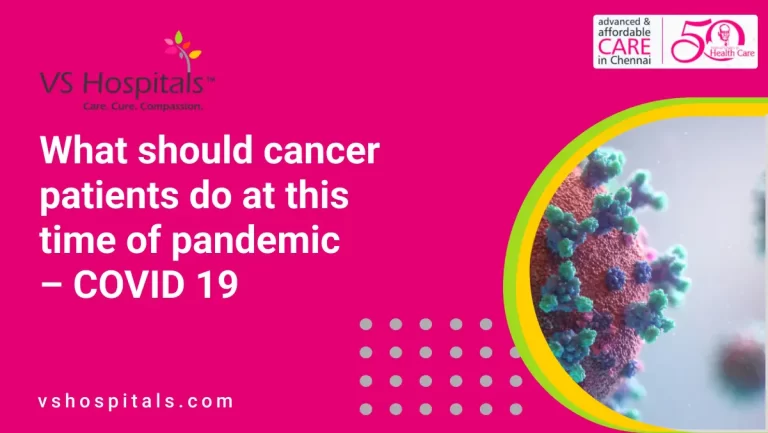If a patient is diagnosed with cancer which is termed as the ‘a bolt from the blue’ where a lot of effort is required to restore back to the normal lifestyle. But at present, the ongoing pandemic – COVID – 19 has added more stress to the cancer patients where they are immune-compromised and are at more risk of the coronavirus. However, the delay in the treatment may result in life-threatening challenges leading to more complicated issues.

So what should the patient do during this time of the COVID-19 pandemic?
Do not Panic
Firstly, focus on what has to be done to overcome anxiety and take off the stress.
Consult a doctor who will help you to ascertain the type of cancer by carefully considering the risks of cancer against the risk of the virus.
Your treatment which requires surgery depending on the type of cancer will have been delayed for a few months considering the COVID-19 situation but, you can take chemotherapy, hormone therapy, and radiotherapy as usual.
Moreover, chemotherapy or radiotherapy schedules can be altered in some cases where you can make fewer visits to the hospital. On the other end, chemotherapy could be administered through oral medications (i.e) in the form of tablets. Whereas, for very low-grade cancers, the treatments may get delayed for a few weeks or months.
Treatment Protocol
Once the treatment protocol decides if the cancer patient has to go to the hospital for treatment or not, you can ask your doctor about the precautions to be taken in the hospital. At VS Hospitals, extreme precautions are taken considering the safety of the patients and the healthcare workers.
- Intense screening of the outpatients and the visitors entering the hospital premises.
- Hand sanitizers are to be provided at multiple locations across the hospital.
- Insisting everyone at the hospital wear a mask and use appropriate protective equipment.
- Safe social distancing with increased spaces while sitting.
- Protective equipment is provided for all patient-facing healthcare workers.
- Frequent cleaning of premises to maintain proper hygiene with the help of the cleaning agents.
- Limiting the family members to accompany the patients.
- Admitting only the in-patient or taking up for certain procedures only if the patient is COVID-negative.
- Fumigation of rooms after each and every patient gets discharged from the hospital.
- Separate isolation wards for patients who are suspected to have COVID but are yet to get the results.
- A dedicated COVID 19 treatment centre in a separate location which is 2 km away to cater to the patients who have tested positive.
- Dedicated infection control team to carefully handle the safety measures and enforce the adoption and adherence to the stringent safety protocols.
- Minimize patient visits to the hospital frequently. Instead, provide a teleconsultation option to patients.
Precautions
Ascertain the list of precautions to be taken by an individual. Contracting the virus treatment may be stopped or paused. Listen to the doctor and local authorities and follow the instructions given by them carefully.
- Stay at home rather than go out frequently.
- Wear a mask.
- Maintain a 6 feet distance from everybody.
- Ask your friends and family to help with groceries or medicine shopping or arrange for them to be delivered.
- Consult your doctor about the symptoms and the line of contact if you face any of the symptoms.
- Insist your caregivers, friends, and family to visit you in taking adequate precautions while outside and at home.
This is a stressful time. How would I adapt?
Adapting to cancer despite Covid can raise many sentiments you’re not used to managing. Dive deeper into sentiments you might have and ways of adapting to them.
What is COVID-19?
Coronavirus is a viral contamination brought about by a Coronavirus. It regularly prompts influenza-like side effects in a greater part. However, not many, of it can prompt hazardous complexities including Acute Respiratory Distress Syndrome, Multi-organ Failure, and so forth.
Be healthy
- Rest well to maintain good health.
- Eat healthy food by intaking a lot of fresh fruits and vegetables in your diet.
- Exercise on a daily basis.
Fight off stress
Discuss with a trusted friend or loved one about your anxieties and hopes. There are various online groups for people who are prone to cancer and cancer survivors. Connect with them and get motivated.
Get a second opinion
If you feel very uncomfortable during your treatments you can go for a second opinion.
Be positive
Be a person with more positivity. Surround yourself with people who motivate you. Last but not least, believe the doctor and trust The Almighty.

When it comes to you and your family, we are just a call away. You can reach us on +91-9962242000.
You can also consult our Specialists at VS Hospitals through Online Video Consultation. Follow the link https://www.vshospitals.com/teleconsults.


